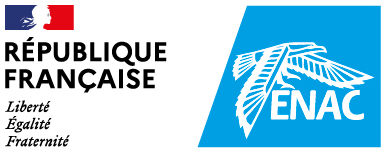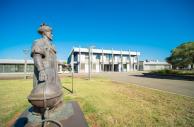
Members & biography
- Corinne Bieder - Professor. She has an experience in various high-risk areas such as aeronautics, nuclear energy, hospitals, etc., which led her to a systemic approach of safety, considering technical, human and organizational aspects. She is a member of NeTWork, an international Think Tank on safety issues, and scientific director of the FonCSI (Foundation for a culture of industrial safety)
- Nicolas Babinet - With an educational background in physics and mathematics, he uses NLP (Natural Language Processing) in the context of safety, and in particular, of artificial intelligence.
- Maelle Joret - Research Engineer, with experience in statistics, Machine Learning and NLP.
- Diana Paola Moreno Alarcon - Post-doctoral student specializing in aviation safety and risk management. Within the Chair, her work focuses on improving aviation safety by encouraging collaboration between industry experts and all stakeholders.
Research activities
Conducted in close collaboration with Airbus Safety teams, the work of this Chair is structured around three complementary axes :
Safety information extraction
Based on the work of the first version of the Chair on automatic language processing, this area will explore information extraction techniques, their performance and their relevance to safety management. The aim is to test promising recent techniques, evaluate, adapt and combine them, with a view to proposing scientifically advanced approaches that are useful from a safety management point of view, and can be used in an industrial context, and to identify the limits of such approaches in this context.
Representativeness of safety report samples
The aim is to use statistical approaches to analyze the representativeness of the sample of spontaneous safety event reports in relation to the entire fleet in service, in order to understand the limits of the information provided by this corpus of data. The ultimate challenge would be to find methods for qualifying the safety problems that emerge from event reports, in order to adapt safety management strategies accordingly.
Safety impact of safety management auditability
In the current governance scheme for aeronautical safety, the supervisory authorities' monitoring of the safety management approaches implemented by aeronautical organizations is based on audits. This is particularly true of the Safety Management System (SMS). In this context, we note that SMS as practiced by aeronautical organizations varies considerably from one structure to another, ranging from a simple "compliance" approach to a real in-depth reflection on organizational practices. These different approaches, "validated" by audits, do not have the same practical impact on safety. This section will explore the extent to which making a safety approach such as SMS auditable, or as the authorities envisage in the short term, a safety culture, affects the impact of this approach on safety.
The ENAC-Airbus "Safety Management" Research Chair was created in 2018 and renewed in 2023. Its principal objective is to address the new safety issues raised both by the changes in the global aeronautical landscape and by the digitalization of the sector.
The Chair is operated by the "Fondation ENAC". To know more: fondation.enac.fr
More informations about the Chaire :









